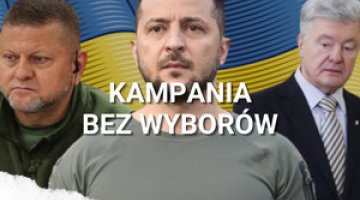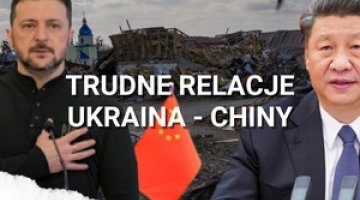The first month of the new government in Ukraine: weakness and indecisiveness
One month after the overthrow of Viktor Yanukovych’s government, Ukraine’s situation is still very difficult. The country is on the verge of bankruptcy, and is facing increased economic pressure from Russia; the Russian army has occupied Crimea, and its agents are encouraging separatist sentiments in the east and south of the country; and the current head of the Ukrainian state is an acting president with limited powers. Thus, the new government must simultaneously pursue three tasks which are almost impossible to reconcile with each other: reforming the state, resisting external aggression, and preparing for elections, while not having a clear plan for any of them. The situation has been aggravated by Russia's actions, which are calculated to inhibit the stabilisation and reform of the Ukrainian state.
The new Ukrainian government has been indecisive and slow to act, the first month of activity by Arseniy Yatsenyuk’s government has not brought any decisions to initiate the process of reform. This is partly justified by the need to focus on countering Russian aggression in Crimea and its sabotage in the east and south of the country. However, the ruling camp is using the threat of war to distract attention from its own incompetence. This has already begun to cause irritation and even protests by that part of society which had supported the change of leadership.
The political parties are focused on the presidential campaign, which is not conducive to taking difficult decisions on reforms. In addition, most of the leading parties are experiencing serious internal difficulties, and the main opposition force, the Party of Regions, is on the verge of disintegration and has de facto ceased to participate in political life.
The Maidan in Kyiv has not been dissolved, although the number of participants has dropped significantly. If necessary, however, the protest movement could easily be reborn. There are signs that some criminal elements have been impersonating members of the Maidan Self-Defence, although it seems that security forces are regaining control of the situation.
The government’s slowness
The leaderships of the Batkivshchyna, UDAR and Svoboda parties were surprised by the outbreak of protests last November, which did not form part of their strategy for preparations to the presidential elections in 2015. Nor were they later able to adapt to the dynamics of the revolutionary events, or to prepare mentally or politically for the possibility of a rapid takeover of full power. The then opposition sought to marginalise the Euromaidan (while needing to flatter them) as well as the agreement with President Yanukovych. The collapse of the agreement signed on 21 February came as a complete surprise to them. A similar surprise came from the collapse of the Party of Regions after Yanukovych fled the country; the new government has proved unable to take advantage of these opportunities.
The new central authorities are controlled by politicians from Batkivshchyna (Oleksandr Turchynov as speaker of parliament and acting president, Arseniy Yatsenyuk as prime minister, Andriy Parubiy as secretary of the National Security and Defence Council); Svoboda received a few marginal portfolios in the government, but UDAR did not participate, although it received a number of positions as heads of regional administrations.
Not much can be said, beyond the response to an external threat, and some personnel changes (which have been slower than might be expected), about the government’s current activities. A package of anti-crisis laws should be presented on 27 March; the announcements concerning the planned solutions are unclear, although they suggest that the disastrous state of public finances is to be resolved (in addition to foreign aid) by increasing fiscal austerity measures. On the other hand, the current government is temporary (after the presidential elections the government will undergo a fundamental reconstruction), which does not encourage them to take strategic decisions.
One of the reasons for this state of affairs (and the growing impatience of supporters of the new government) is that the revolutionary action of the Euromaidan has not brought revolutionary changes, but only the replacement of one group of political elites with another – effectively a swap between the ruling and the opposition camps. In this way, the country is still headed by people with experience of government (which is especially beneficial in the light of the threat to state security), but also whose sole experience is of working within the context of post-Soviet oligarchic-bureaucratic system. It is hard to expect them to undertake the dismantling of the system.
The new government cannot find the necessary support in parliament. The majority it previously commanded (the Party of Regions, the Communists, some independents) ceased to exist; the new one (Batkivshchyna, UDAR, Svoboda, and two newly established groupings made up of independents and ‘refugees’ from the Party of Regions) is inconsistent and undisciplined. Numerous requests by the government have failed due to insufficient numbers of deputies in the hall (despite the continuation of the practice of illegally casting a vote while absent). The new leadership of the parliament has difficulty coping with the conduct of parliamentary business, although since the inauguration of the new speaker this cannot be changed, as it would entail a change of the head of state. On the other hand, a significant number of the deputies have realised that they have no chance of winning another term and have lost interest in the work of parliament, while others are already giving speeches in support of the presidential campaigns of their parties’ leaders.
The Yatsenyuk government’s decision for Ukrainian troops not to offer armed resistance in Crimea may justify fears that any active resistance would provoke an attack by Russia in eastern Ukraine (which is Kyiv’s official position). However, Kyiv’s indecisiveness, including the failure to withdraw its ships and aircraft from Crimea, and to issue its troops stationed there with clear orders, gave a very poor impression and undermined the authority of the government. The dismissal on 25 March of the acting defence minister can also be seen as an attempt to find a scapegoat.
The parties on the eve of elections
The main political parties are preparing for the congresses at which they will nominate their candidates in the presidential elections. The results of these meetings are mostly quite difficult to predict. The only clear situation is that of the Communist Party of Ukraine (where Petro Symonenko will stand once again) and Vitaly Klitschko’s UDAR party (a party with a name like that could not possibly choose another candidate).
The situation within Batkivshchyna is unclear since Yulia Tymoshenko’s return to active public life. Her candidacy has many opponents within the party leadership, and the fact that the congress was convened for the last possible date, 30 March (the deadline for applications to register candidates) testifies to a serious dispute, and may portend significant changes in the party’s leadership.
Svoboda is in a difficult situation, as the constitution of the Right Sector as a political party has forced it to compete for the fairly large extreme nationalist electorate, who had previously had no alternatives. It is of essential importance for the future of Svoboda that its leader Oleh Tiahnybok receives significantly higher support in the elections in May than Dmytro Yarosh, the leader of the Right Sector. Pulling back from confrontation, which observers do not exclude, would be a disaster for Svoboda’s image.
The Party of Regions’ congress has been postponed four times already, which demonstrates that the party is on the verge of a split, if not total collapse. Its chairman (the former Prime Minister Mykola Azarov) and honorary chairman (Viktor Yanukovych) are abroad and cannot legally return to Ukraine; some of their parliamentary deputies have endorsed the new government while others remain in opposition to them, and a significant portion does not participate at all. Reports about who could lead the party (and whether it still is a unified party), and who its candidate in the elections will be, are currently no more than speculation.
The Maidan dormant
The Euromaidan (understood as the camp in the centre of Kyiv) and its Self-Defence has not been dissolved, although most of its participants have gone home. But they are ready to resume action in either the current or a new form, and the return of the Maidan’s militants to their hometowns will affect the development of structures of a ‘protest society’ (including Self-Defence branches) in regional centres.
Some of the Maidan Self-Defence remains in the centre of Kyiv, while others have been ‘demobilised’; at least 500 people have joined the newly formed National Guard, and have begun intensive military training. The authorities plan to incorporate at least several thousand members of the Self-Defence into the National Guard and the Armed Forces.
The sense of the threat of war has weakened the desire to exert pressure on the new government, and has extended their ‘credit of trust’. However, there has already been a protest against the new government’s personnel decisions, especially in the police and the prosecutor's office, and on 25 March a picket was held at the parliament demanding the immediate enactment of anti-corruption laws. After the situation in the east and south has been stabilised, we can expect a greater willingness to oppose those actions and omissions by the new government which the Euromaidan (here understood as the pluralistic and informal social movement) disapproves of. We may also expect the formalisation (as associations or political parties) of the movements and organisations that arose during the protest.
Restoring public order
One of the consequences of Yanukovych’s escape was the demoralisation and disorganisation of the police and other departments of law enforcement, both in Kyiv and to a lesser extent in other centres. For several days the streets of Kyiv were patrolled by the Maidan Self-Defence, and later mixed patrols of militia and the Self-Defence appeared. However, the latter did not wear any clear distinguishing marks, and so it was easy for criminal elements to impersonate them, and thus benefit from disrupting public order. In mid-March the situation began to normalise, and the police started to act more firmly and decisively.
During the protests in some centres in western and central Ukraine, some groups using the name ‘Right Sector’ were formed, but this was not related to the centre of this movement in Kyiv. It is possible that some of them were criminals.
Reports have come in from Kyiv and some other areas about criminal activities (including robberies), carried out by people representing themselves as Self-Defence members; these reports have been publicised by pro-Russian and Russian media. Some of them proved to be false (such as an alleged attack on a train in Vinnitsa, which turned out to be a police intervention to catch a robber on a moving train); others have been more difficult to verify. However, there is no doubt that the security situation on the streets visibly worsened for a while. Similarly, there are sporadic yet confirmed cases of members of nationalist organisations (including Svoboda) trying to force high-ranking officials to resign by illegal means.
The request for the Maidan Self-Defence to hand over the firearms it held illegally (mainly taken from the police during the fighting) has been generally ignored, as proved by the fact that after a few days the authorities announced the official registration (and thus, indirectly, the legalisation) of these weapons.
On 25 March Oleksandr Muzychko, one of the leaders of the Right Sector, and a nationalist activist in the Ukrainian National Self-Defence, was shot dead during an attempt to arrest him. The circumstances of his death are as yet unexplained. The leadership of the Right Sector have demanded the resignation of the interior minister Arsen Avakov (a member of Batkivshchyna, whose nomination had already been criticised by the Maidan). For his part the minister strongly criticised the criminalisation of some Self-Defence veterans, as well as the existence of armed formations which are uncontrolled by the state. Resolving this latter problem, next to Russia’s subversive activities in the east and south, poses a fundamental challenge to the internal security of Ukraine at this moment.





